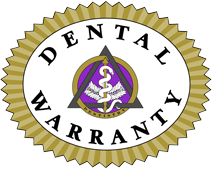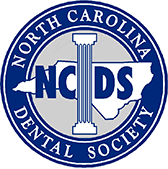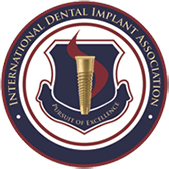
You might be wondering: why is my mouth so dry, what causes dry mouth, and can it lead to gum disease and other oral issues? In this YouTube episode, Modern Family Dental Care outlines the causes of dry mouth, its symptoms, its relationship with your oral health, and how to prevent dry mouth for good.
What is dry mouth?
Dry mouth (otherwise known as xerostomia) is a condition that occurs when your salivary gland does not produce enough saliva. This leaves a parched feeling in your mouth and may lead to other symptoms like cracked lips, dry throat, and bad breath.
On its own, xerostomia is not a serious medical condition. But it can be a symptom of an underlying condition that needs your attention and treatment. It may also result in complications like mouth sores and tooth decay.
Dry mouth causes
Many factors can cause xerostomia. Possible causes include:
- Medication side effects
- Dehydration
- Breathing dry air
- Snoring and mouth breathing
- Stress and anxiety
- Radiation therapy
- Aging
- Smoking and use of recreational drugs
Several health conditions can also cause dry mouth. These include:
- Diabetes
- Salivary gland infection
- Oral thrush
- Cystic fibrosis
- Nerve damage via stroke, injury, surgery, or infection
- Autoimmune disorders
- Alzheimer’s disease
Important: Having xerostomia alone does not mean you have an underlying issue. If you notice other symptoms or think another condition is the cause, talk to your dentist about diagnosis and treatment options.
Symptoms of dry mouth
Common symptoms include:
- Parched or sticky sensation in the mouth
- Dry throat
- Frequent thirst
- Mouth sores
- Trouble speaking, chewing, tasting, or swallowing
- Bad breath
- Dry tongue
- Cracked lips
- Sore throat, dry nasal passages, hoarseness
- Tingling or burning sensation on the tongue
Dry mouth and oral health
Dry mouth can lead to oral health issues due to decreased saliva production. Saliva is an essential oral health component that moistens and breaks down your food to aid digestion. It also prevents your teeth from acid erosion by restoring minerals to the teeth, washing away food debris, and neutralizing acids within your mouth.
Most people deal with dry mouth from time to time. But when it becomes a constant, chronic problem, it can result in serious oral health issues, including:
- Increased plaque and tartar
- Tooth decay
- Gingivitis or gum disease
- Enamel erosion
- Dental staining
- Yeast infection (thrush)
- Chronic bad breath (due to an increase in the number of bacteria lurking in your smile)
- Poor nutrition due to reduced ability to chew and swallow food
Dry mouth can also increase your risk of mouth infections and make it difficult to wear dentures.
Treatment options for dry mouth
Since dry mouth can lead to severe dental damage, it should not be left untreated. Fortunately, various treatment options are available to treat dry mouth and restore the appearance and health of the damaged teeth.
Treatment options can include gum treatments like scaling and root planing to reverse gum disease. It may also include dental crowns, tooth-colored fillings, teeth whitening, and dental cleaning to remove plaque, remove stains, and restore your beautiful white smile. However, the ideal treatment option for you will depend on the cause and the type and extent of the damage.
Your dentist will examine you to find the underlying cause of the issue and create a personalized treatment plan to control or eliminate the symptom you’re experiencing. Your dentist may also prescribe medication or artificial saliva to boost saliva production and address dry mouth concerns.
Dry mouth prevention tips
Treating and preventing dry mouth is an easy process. In most cases, you can relieve and prevent symptoms of dry mouth by doing one or more of the following:
- Limiting the amount of salt, caffeine, sugar, and alcohol you consume
- Breathing through your nose
- Sucking on ice cubes (you can also drink or sip more water throughout the day to avoid dehydration)
- Sleeping with a humidifier in your bedroom
- Avoiding recreational drugs and tobacco products
- Chewing or sucking on sugar-free gum or candy
- Using over-the-counter mints, fluoride rinses and toothpaste, and saliva substitutes
Brushing and flossing your teeth daily and visiting your dentist twice per year for a dental checkup are also important. Good oral hygiene can help prevent gum disease, tooth decay, and other issues caused by dry mouth.
Treating and preventing dry mouth is important as it reduces your risk for periodontal disease and other dental issues. If you or your loved ones are looking for dry mouth treatment in Charlotte and Concord, schedule an appointment with us today or visit our Concord Mills, University offices to find out the right treatments for you.






